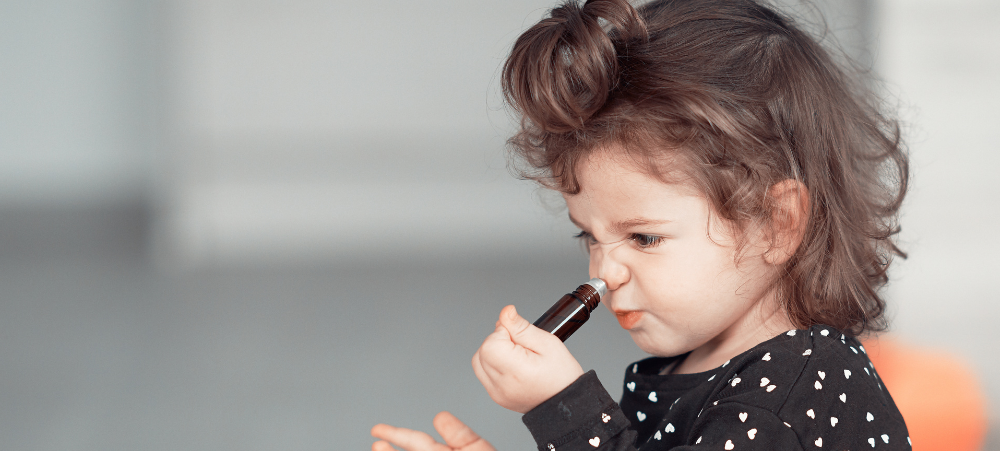South Africa has joined the new oil boom and you can now readily find doTERRA and Young Living essential oils on our shores. With all the apparent “positive” effects these oils are having and especially since I am seeing so many parents use these oils on their children, I decided to do a little research, because for me, it’s all in the evidence.
WHAT ARE ESSENTIAL OILS?
Essential oils (EO) are not a new thing, they have been around for years. These oils are extracted from flowers, herbs and other plants and used to promote physical and emotional wellbeing.
Many pharmaceutical drugs used today are actually derived from plant sources. Drugs such as digoxin, quinine, morphine, codeine and aspirin all find their origins in plants. So it only makes sense to assume that essential oils must be effective against some medical conditions too.
IF IT’S NATURAL IT MUST BE SAFE?
Just because it’s natural does not always mean it is safe. Some of the most poisonous toxins in the world are found in plants – think belladonna and oleander.
Children have different absorption, distribution, metabolism and excretion of substances compared to adults. They also have immature body systems, which all make them more sensitive to the side effects of essential oils, regardless of how ‘natural’ a substance may be. There are also some children who are more sensitive than others because they are more allergy-prone.
There are, of course, other concerns with essential oils. Concerns about carcinogenicity, mutagenicity and toxicity to the fetus in pregnant women and also what effects certain oils have on breastfed infants.
IT’S ALL IN THE RESEARCH
Using essential oils in low concentrations and inhaling their vapours is usually safe for most people. But when it comes to our little ones we can never be too safe. There is very little research available on the benefits of essential oils and even less on how these oils affect babies and children.
While aromatherapy has been practiced for centuries in various cultures, it has not yet been properly evaluated for medical effectiveness. Most of the research that has been done has not been done on human subjects and those that have been done on adults are poor quality.
While we can argue that there is some evidence to show that essential oils improve physical and emotional wellbeing, I have reason to be concerned with the drug-like claims some people make about these oils. Essential oils should NOT replace scientifically proven effective (and safe) medical treatments for medical conditions.
SPECIAL CONSIDERATIONS WHEN USING ESSENTIAL OILS IN CHILDREN
- Essential oils are not a replacement for medical care.
- According to the American Association of Naturopathic Physicians, essential oils should not be used in babies younger than three months old.
- Children and babies should NEVER take essential oils orally.
- Always make sure you use a pure essential oil. Don’t use ones that are premixed with alcohol or other synthetic fragrances, as these can irritate the skin.
- Never apply an essential oil directly onto your child (and even your own) skin. Always mix it with a carrier oil such as coconut or grapeseed oil. You should probably ask a distributor about the difference between linoleic and oleic acids. Oils high in oleic acid are not recommended for sensitive skins prone to conditions such as eczema.
- Always dilute essential oils. Follow the recommended dilution ratios. If you are buying your EO from a distributor they should be able to give these to you.
- Diffusing oils is generally safer than applying them to the skin. If you are going to be using a diffuser, pay attention to your child’s reaction. Sometimes the oil particles enter the airways and can cause irritation especially if your little one has a reactive airway.
- If your child develops a rash or skin irritation, headaches, nausea and/or vomiting, coughing, wheezing or difficulty breathing, stop using the essential oils immediately and contact your healthcare provider.
- Do a patch test first to see if the oil causes irritation. Rub the oil into a small part of the forearm and wait 24 hours. If you notice any redness, swelling or a rash develop do not use this oil.
- Do not apply essential oils topically to children with sensitive skin, eczema or other chronic skin conditions as this can cause aggravation.
Remember as with all medications in your home, keep them out of sight and out of reach of your children because many essential oils are extremely toxic in overdose. Accidental poisoning with essential oils in children is becoming increasingly more common, since most essential oils smell nice. Children are also more likely to choke on these oils because of their bitter taste. This will send these oil particles straight into the lungs and cause aspiration pneumonia, which can be fatal.
All this being said, I am not anti-essential oils. In fact, I have seen some benefits of their regular and correct usage in my own household. However, what I am against is when parents claim that essential oils can prevent or treat medical conditions. Essential oils are prescribed to help promote wellbeing. Promote meaning to support and not cure.
Since there is no solid evidence that essential oils are safe and effective in children, major organisations such as the American Academy of Pediatrics (AAP) do not recommend using them at all in children. My advice to parents is to use them as directed, as you would administer prescribed medication to a child. Not all oils can be used on children and some can only be used on children over a certain age. Do your homework. Natural does not equate to safe, so please always be mindful.
RESOURCES
https://www.healthline.com/health/parenting/essential-oils-for-babies#TOC_TITLE_HDR_1
https://healthywa.wa.gov.au/Articles/A_E/Essential-oils
https://parenting.nytimes.com/childrens-health/essential-oils-safe
https://pediatrics.aappublications.org/content/112/Supplement_1/240.abstract
https://www.poison.org/articles/2014-jun/essential-oils
- How Safe Are Teething Gels? - November 19, 2025
- 10 Essential Tips To Prevent Poisoning In Your Home - October 29, 2024
- A Bump To The Head: When Should You Worry? - October 25, 2024





